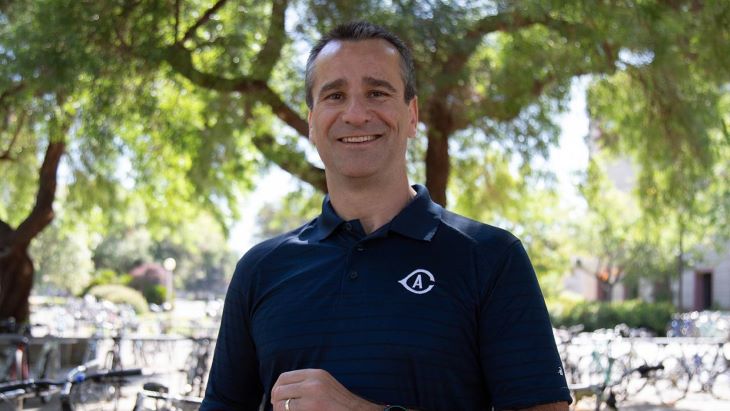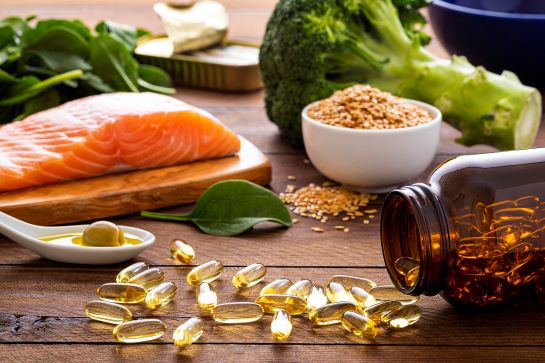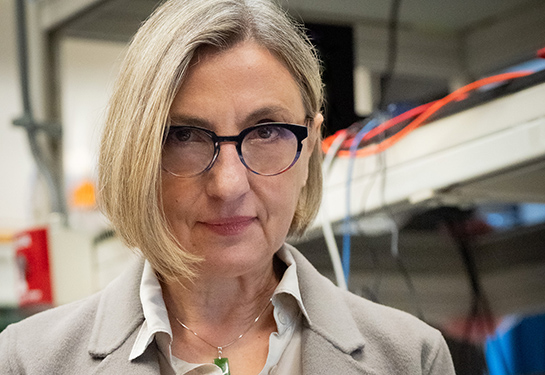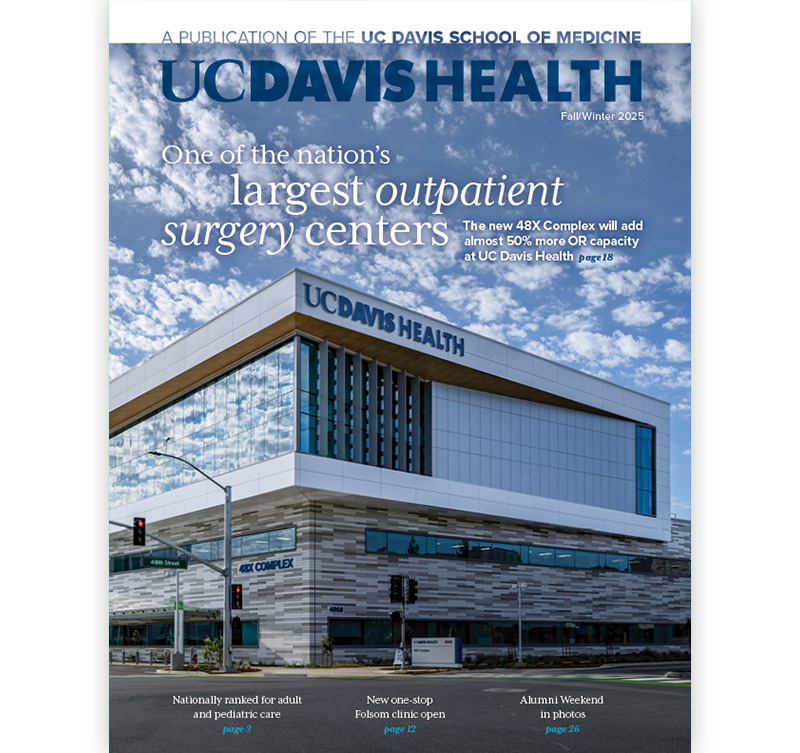Do collagen, omega-3 and whey supplements help your bones?
UC Davis Health physiologist studies the effects of popular supplements on muscles, tendons and joints
The global dietary supplements market, valued at $178.8 billion in 2023, is rapidly growing. UC Davis Health molecular exercise physiologist Keith Baar specializes in sports medicine and studies the effects of collagen, whey and omega-3 supplements on bone and tendon health. In this Q&A, Baar, who is a professor in the Departments of Neurobiology, Physiology and Behavior and Physiology and Membrane Biology, shares the findings from his studies of these supplements.
Why is collagen important for the body?
Collagen is the most abundant protein in our body. All our musculoskeletal tissues are built on a foundation of collagen. Collagen makes up our tendons, ligaments and bones. For this musculoskeletal system to work well, we need to have a good collagen turnover that replaces older collagen with new ones.
What foods are rich in collagen?
Collagen is a meat-based protein. Animal tissues are the only natural source of collagen. There are a few vegetables that are high in the amino acid glycine (key ingredient in collagen), but they are not as readily absorbed.
People who already eat a lot of meat or have bone broth don't see as big of an effect of collagen supplementation. This is true for those who eat whole cuts of meat with some marbling in the connective tissues - not only the tender filet mignons. Those individuals are going to have good amounts of collagen in their diet. Vegetarians and vegans will need a good source of the right amino acids for their bodies to build collagen.
You have been studying collagen for many years. What does your research on collagen tell us?
What we eat both positively and negatively affects how much collagen we make. Making more collagen not only affects the skin, hair and nails, but also has musculoskeletal effects. So basically, the choices that we make at the dinner table directly affect how our skin looks and body works.
Does caffeine impede the body’s ability to make collagen?
If it's a lot of caffeine, like 5-6 cups of coffee, it does. We have done a mouse study that showed that both muscle size and tendon adaptations to exercise seem to be slightly impaired by high caffeine intake. When we did lab experiments, we could see a direct effect of caffeine on decreasing both muscle and connective tissue protein synthesis, but it takes a lot of caffeine to do that in people.
There is a huge market for collagen supplements. Are they good for the bones?
Our studies have shown that when taking a collagen supplement, there is an increase in a circulating marker (known as procollagen N-Terminal peptide) of collagen synthesis. So, we know that hydrolyzed collagen supplements can be good. This is especially true in older individuals. One of the places where we have good evidence is in osteoarthritis. Individuals who supplement with collagen show a decrease in osteoarthritis symptoms, such as knee pain or restricted movement.
Are there side effects to taking collagen supplements?
There is no downside to taking high quality collagen supplements, i.e. those from animal skins. Collagen made from bones can have high amounts of heavy metals. However, more collagen largely means more protein with specific amino acids needed to make collagen in our bodies. In many cases, there seems to be a nice upside. How much of an upside depends on the individual: What their normal diet is, whether they are eating a high-fat diet or drinking too much caffeine.
Do collagen supplements help the body make more collagen, or are they ready-made collagen that gets absorbed?
So, any supplement you take is digested and absorbed down to very small peptides or amino acids, and then you rebuild something with those basic materials (amino acids). To build collagen, we need a lot of glycine and proline amino acids. If there isn't enough glycine or proline, then we can't make as much collagen as we want.

What is whey, and why is it important?
Whey is the acid-soluble component of milk. Cheesemakers used to throw the whey onto their fields because they thought it was a waste product.
But, since whey has all the amino acids and is a complete protein, unlike collagen, it is a high quality protein. Whey has a lot of leucine, a key amino acid for protein synthesis, and proline. However, it is not as rich in glycine, a building block of collagen.
Why is it recommended to take collagen supplements or food rich with collagen in addition to whey?
Together with our research collaborators at Maastricht University, we found that when people are fed milk protein like whey, their glycine levels in blood would go down. They wondered if that happened because the body was using the glycine to make more collagen. So, we tested that.
Our study showed that we can make more connective tissue in our muscles by taking a whey protein and collagen blend. The whey protein has all the amino acids and a lot of leucine, and the hydrolyzed collagen has a lot of glycine. Now, we have a protein that will support building both the connective tissue and muscle.
This study was the first time we have demonstrated, using a direct measure of collagen synthesis, that we can nutritionally change how much collagen we make in our muscles.
You also studied the effects of fish oil and omega-3 fatty acids on bone and joint health. What did your studies show?
Musculoskeletal health and inflammation are connected. If you have more inflammation, you will get more tendon and musculoskeletal injuries. Fish oils could have an effect by decreasing inflammation and that would potentially improve collagen turnover. Our studies have shown that, without inflammation, fish oil or omega-3 do not seem to directly affect our tendons and ligaments.
Related Readings:
Intermittent fasting, balanced or a keto diet? Food for thought
Study shows that keto diet boosts size and strength of aging muscles, improves brain health






